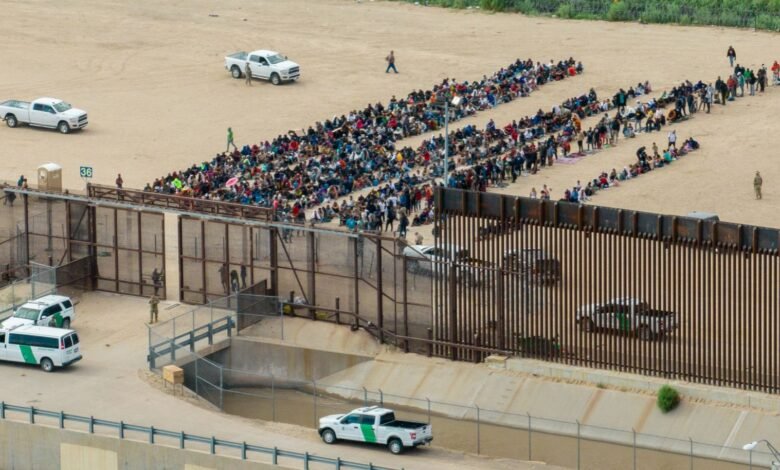The Economic Impact of Illegal Border Crossings

The economic implications of illegal border crossings into the United States have long been a subject of debate. While critics argue that illegal immigration places a significant strain on public resources, others contend that undocumented immigrants play a vital role in the U.S. economy, especially in sectors that rely heavily on low-wage labor.
1. Economic Contributions of Undocumented Immigrants
It is estimated that there are around 11 million undocumented immigrants living in the U.S. Many of these individuals contribute to the economy in various ways, often taking jobs that native-born Americans are unwilling to fill. The agricultural industry, for example, relies heavily on undocumented workers for harvesting crops, a labor-intensive task that is essential for maintaining food production.
In addition to agriculture, industries such as construction, hospitality, and manufacturing also benefit from the labor of undocumented immigrants. These workers fill low-wage jobs that support the U.S. economy and provide services that would otherwise be in short supply.
Despite being undocumented, many immigrants pay taxes, contributing to the Social Security system, sales taxes, and other local and state taxes. Research suggests that undocumented immigrants contribute billions of dollars annually to the U.S. economy through their work, even though they are ineligible for most government benefits.
2. The Fiscal Burden Argument
On the other side of the debate, critics of illegal immigration argue that undocumented immigrants place a significant fiscal burden on the U.S. government. The costs are often associated with public services such as healthcare, education, and welfare programs. Undocumented immigrants, who do not have access to the same benefits as citizens, may still require emergency healthcare, schooling for their children, or assistance in times of need.
A report by the Federation for American Immigration Reform (FAIR) suggests that the cost of providing these services to undocumented immigrants runs into the billions of dollars annually. Critics argue that this burden falls on taxpayers, particularly in areas with large immigrant populations.
3. Impact on Wages and Employment
One of the most contentious aspects of the illegal immigration debate is the impact on wages and employment opportunities for native-born workers. Opponents of illegal immigration argue that the influx of low-wage labor drives down wages for American workers, particularly in industries like construction and agriculture.
However, studies show mixed results regarding this claim. Some economists argue that the presence of undocumented workers helps to keep prices low for goods and services, thus benefiting consumers. Furthermore, the jobs held by undocumented immigrants often complement rather than compete with those held by native-born workers, with many immigrants filling positions that would otherwise go unfilled.
4. The Need for Comprehensive Immigration Reform
The economic impact of illegal border crossings highlights the need for comprehensive immigration reform. While undocumented immigrants undoubtedly contribute to the economy, it is clear that the current system creates both opportunities and challenges.
Reform could involve creating legal pathways for immigrants to enter the U.S. to work and contribute, while also providing mechanisms to regulate and control the flow of migrants. One possible solution is a guest worker program that would allow individuals to come to the U.S. temporarily to work in industries with labor shortages, while ensuring that they are properly documented.
Additionally, addressing the status of undocumented immigrants already in the country could help to integrate them into the formal economy. Legalizing the status of undocumented workers would allow them to access healthcare, pay taxes more effectively, and contribute more fully to the economy.
5. Conclusion
Illegal border crossings have both positive and negative economic impacts on the U.S. economy. While undocumented immigrants play a critical role in many sectors, their presence also creates challenges, particularly in terms of public services and employment competition. Comprehensive immigration reform is necessary to address these challenges and to create a more sustainable and fair immigration system that benefits both immigrants and the broader U.S. economy.



